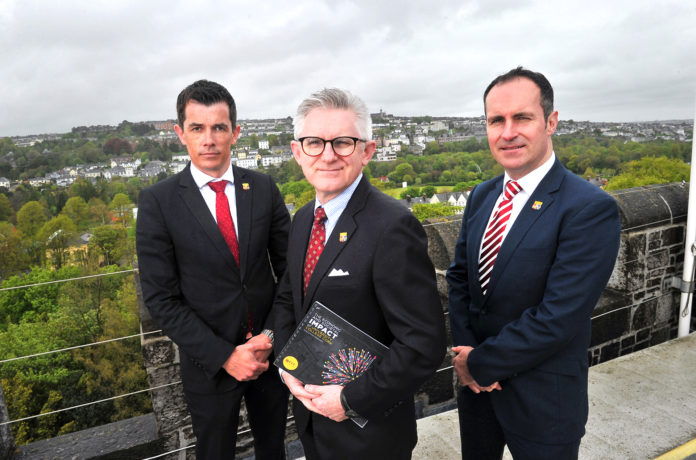
University College Cork (UCC) generates €2.3 million per day for the Irish economy, according to a new report launched on Monday.
The Economic and Societal Impact Report shows that the University supports almost 15,000 jobs on an annual basis, which equates to approximately 1 in every 15 jobs in Cork city and county.
The culmination of an intensive six-month study – which relates to 2016 as its reference year – for the first time this report provides detailed evidence measuring UCC’s impact across five key areas: economic, workforce development, business, creation and discovery, and societal.
Highlights from the study include UCC’s total economic impact (Gross Value Added) amounting to €853 million annually; that output is produced for a €151 million state investment. For every €1 of state investment, UCC returns €5.68 to the Irish economy.
UCC graduates who remain and work in Ireland create extra economic value of up to €24.8 million for the economy in the first year after graduation, compared to non-university graduates, the study reveals.
HIGH RETENTION RATES
The effectiveness of UCC’s education programmes is evidenced by its student retention and employment rates.
The report found that the first-year retention rate of 93.4% for the academic year 2017/ 2018 was on a par with elite third level institutions in the US, while employment rates of UCC graduates, including those in further study, were at an historic high, at 94% and 95% at undergraduate and postgraduate levels.
The University shapes and impacts the physical landscape of Cork as much as its heritage and culture, the authors claim, with its €241 million development plan (2017-2022) the largest planned by any organisation in Cork.
In addition, UCC makes a telling contribution to areas such as the arts, the environment and sport, according to the authors.
On UCC’s positive impact on society, the report highlights how UCC has taken a lead role nationally in widening participation and access to third level education; 23% of UCC’s undergraduate intake comprises mature students, students with disabilities and non-traditional college-goers.







